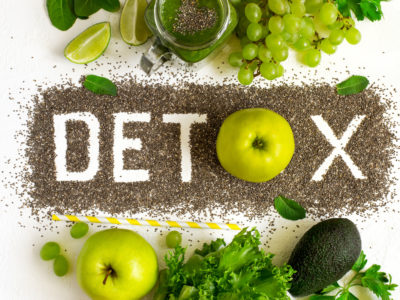
If you need to increase your energy levels, improve your gut health. Learn how a balanced microbiome can be an excellent energy booster.
RELATED: Hormesis: Hacking Your Body For Strength And Energy
In this article:
5 Ways a Balanced Microbiome Improves Your Energy Levels
Microbiome Definition: It refers to the community of microorganisms such as viruses, bacteria, and fungi in the body, particularly the small intestine.
1. Improved Quality of Sleep

By now, you already know that one way to increase energy levels is by getting enough sleep. What you may not be aware of is it’s not enough you’re snoozing for at least seven hours.
Quality also matters. If you feel sluggish or tired even after a long rest, then you definitely didn’t have a good night’s sleep.
Many factors can impact your sleep quantity and quality including the temperature in the bedroom, noise, and light.
Sleep apnea can also disrupt sleep. In this condition, the air’s passageway relaxes, which leads to snoring.
Inside your body, your microbiome can affect your sleep because of its influence on your stress hormone called cortisol. Cortisol, which the adrenal glands produce, is responsible for many changes in the body.
It can increase your heart rate, regulate your blood pressure, and provide you with a higher energy level at certain times.
This explains why it tends to be at its highest level in the morning. But as the sun goes down, its level should also decline.
The problem comes in when cortisol continues to remain high even during nighttime. Your body says you should be resting, but you still can’t relax or feel sleepy.
There are two ways to regulate your sleep cycles. The first is controlling the level of cortisol with the help of a probiotic called Lactobacillus casei strain Shirota.
This probiotic helps lower cortisol levels and thus, reduce energy levels at night too.
When taking the probiotic, it also helps increase the production of tryptophan, an amino acid that boosts the creation of serotonin.
Serotonin is a neurotransmitter that is the precursor for the production of melatonin, a hormone, in the pineal gland of the brain. Melatonin has a direct impact on your sleep-wake cycle.
In other words, if you have more tryptophan, then you’ll have more melatonin which helps you feel sleepier at night and pave the way for a quality night’s rest.
The takeaway is the better quality of sleep you have, the healthier the gut microbiome will be, and the more effective a healthy gut can promote higher energy levels.
2. Energy Regulation
A healthy gut, which has a balanced microbiome, is excellent in creating the best energy levels. It plays a role in harvesting, storing, and expending energy.
The question is how. The answer is in a process known as the tricarboxylic acid cycle.
Also known as Krebs or TCA cycle, it is an essential step in cellular respiration. It is a metabolic pathway that uses glucose to create adenosine triphosphate (ATP).
ATP serves as the energy carrier or transporter within the cell, which means the cells cannot perform their functions without it.
The body can create ATP from the food you’re eating such as meat since it contains glucose, fats, and proteins. The intestines take care of the extraction of calories and assist in the creation of energy.
The effectiveness of the microbiota in regulating energy, however, depends on their composition. There are also many factors that can affect the homeostasis or the balance of the gut flora such as diet.
In a 2011 study, changes in calorie intake (from 2,400 to 3,400 kcal) in three days dramatically altered the microbiota structure.
The more balanced the microbes are, the more efficient they are in their tasks. For example, they become excellent in using food as energy.
Meanwhile, if they cannot metabolize the macronutrients especially sugar, the body will only keep it as fat. The same thing can also happen if the gut flora extracts a lot of calories from the food, resulting in insulin resistance.
How well the microbiome converts food to energy also depends on a person’s lifestyle. Sedentary people are more likely to end up storing excess energy as fat.
RELATED: Need a Boost? Enhance Your Energy, Naturally!
3. Mood Stability

Serotonin also controls your mood and lower levels of it may worsen depressive symptoms. Studies show people with depression tend to experience sleeping problems.
That’s not all. There exists a gut-brain pathway through the vagus nerve, which connects the gut to the brainstem.
It implies that whatever happens in the small intestine, particularly the gut bacteria, it has a potential impact on how your brain works or reacts.
As an example, 2016 research published in Nutrition cited how participants with major depressive disorder experienced better moods after consuming three probiotic strains.
4. Glucose Regulation
For your cells to function, they need energy, and one of the primary sources is glucose. This is why you can easily combat fatigue and improve your energy levels after eating carbs.
Some types of sugar may even give you a sugar high. This refers to a condition wherein you are both physically and mentally alert.
There’s a negative effect, however, which people call sugar crash. When glucose levels drop, it also dampens your energy levels.
If this is how your body works at all times, you can imagine how tiring it must be.
There are a number of ways to regulate blood sugar. For instance, you can consume more fiber to slow down digestion or increase your physical activity, such as exercising to burn sugar more efficiently.
You can also improve your gut health. A 2015 study found in Diabetes Care revealed an intake of a probiotic called Lactobacillus reuteri may help regulate the glucose and insulin levels.
5. Nutrient Absorption

One of the primary jobs of the small intestine is to absorb nutrients, but it cannot do this task well without the right combination of microbes.
These microorganisms also have different functions or purposes in the gut. If one of them fails to follow their to-dos, then your body may not be able to make the most of your vitamins and minerals.
When that happens, it increases your risk of inflammation, which can affect your joints. It may mean fewer or insufficient B vitamins that are meant to provide you with an energy boost.
There are many explanations about why you cannot fall asleep or feel tired all the time. What binds most of them, though, is your gut flora.
By supporting it with the right food, probiotics, and stress management, you can develop a healthy, balanced microbiome that provides you with the right energy levels when you need them.
You May Also Like…




